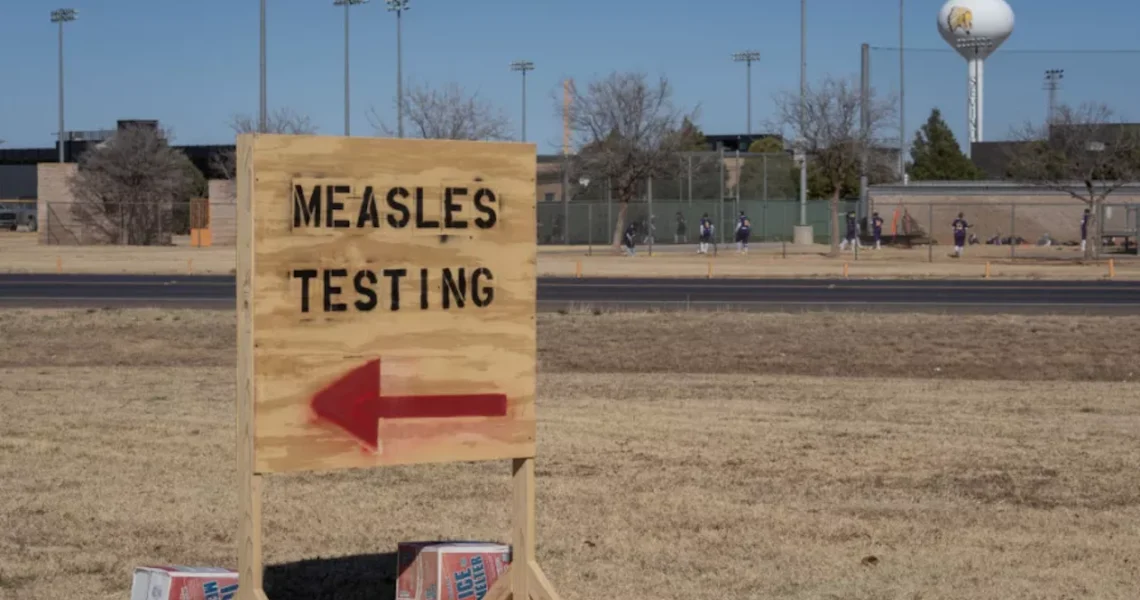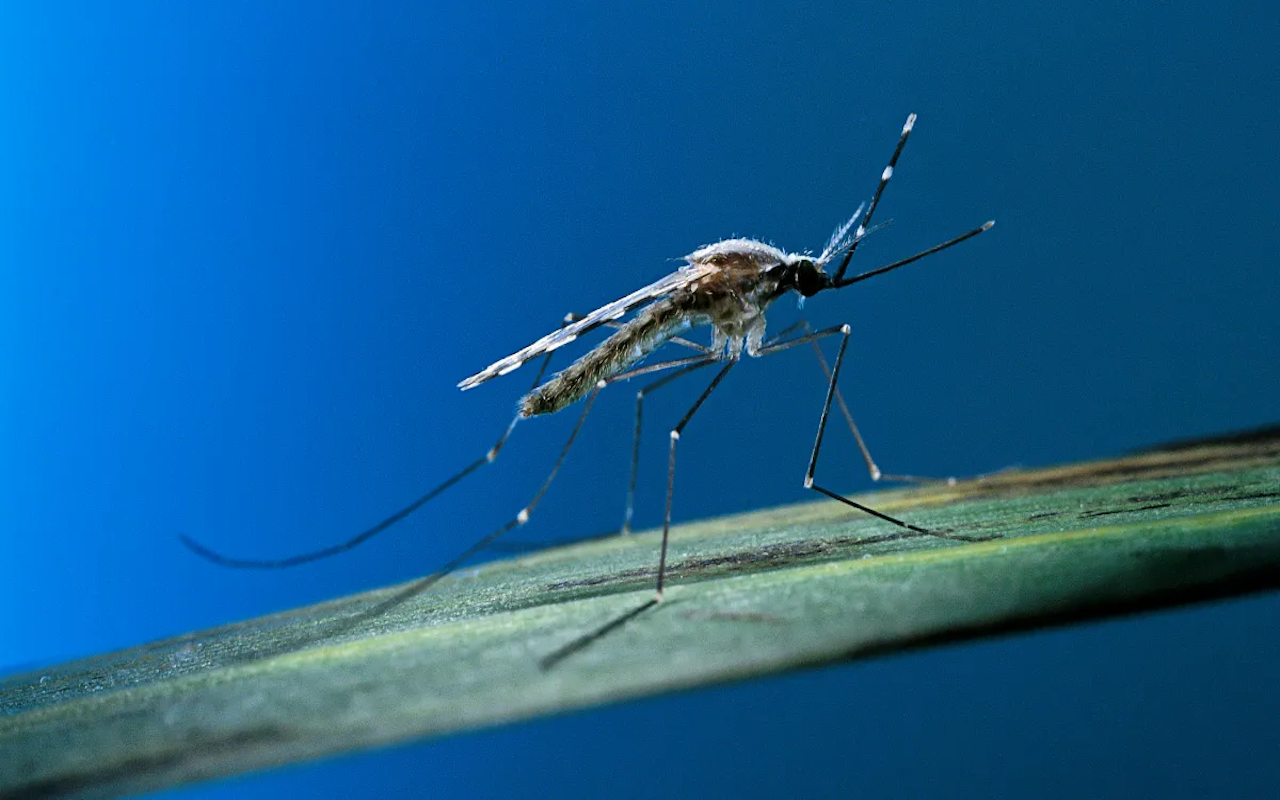US Measles Surge: Highest Cases in 33 Years
The United States is currently grappling with a alarming public health challenge: a significant resurgence of measles cases.
According to the latest figures released by the Centers for Disease Control and Prevention (CDC), the U.S. has reported an staggering 1,288 measles cases this year (2025). This marks the highest number of cases recorded in 33 years, a stark indicator of a worrying trend. The last time the U.S. experienced such a high volume of measles infections was in 1992, a full eight years before the disease was officially declared eliminated within the country.
This dramatic uptick in cases has raised serious concerns among public health experts. “We’re seeing a lot more measles transmission than we are used to,” states Caitlin Rivers, director of the Center for Outbreak Response Innovation at Johns Hopkins University. Her center actively monitors infectious disease trends and maintains its own comprehensive measles dashboard, providing real-time data on the unfolding situation. The sentiment among health professionals is one of frustration and urgency.
“Measles is one of the most infectious diseases known to humans. And more importantly, it’s preventable. And so we really hate to see this resurgence of a preventable virus,” Rivers emphasizes. This preventable nature of measles makes the current outbreak particularly disheartening, as it signals a regression in public health achievements that were once considered solidified.
The Epicenter: Texas Outbreak Fuels National Numbers
The measles resurgence is not evenly distributed across the nation. Since the beginning of 2025, confirmed measles cases have been reported in over three dozen states in addition to the District of Columbia. However, one state has emerged as the primary hotspot: Texas. The Lone Star State has reported a staggering 753 measles cases this year, accounting for a significant majority of the national total. This concentrated outbreak highlights vulnerabilities within communities where vaccination rates may have dropped below critical thresholds.
The human toll of this resurgence is also becoming increasingly evident. Across the U.S., at least 155 individuals have been hospitalized due to measles complications. Tragically, three people have lost their lives to the disease this year. While the Texas outbreak has shown signs of slowing significantly in recent weeks, Rivers cautions that the overall national picture remains concerning. She notes that, across the country, the U.S. is currently seeing more new measles cases on a weekly basis than in any of the preceding years. This indicates that while one major outbreak might be brought under control, the underlying conditions for widespread transmission persist across different regions.
The Threat to “Elimination” Status
The Texas outbreak, which began in January 2025, initially posed a severe threat to the U.S.’s official “elimination” status for measles. At its peak, Rivers reports that Texas was recording between 15 to 20 new measles cases per day. Such intense, sustained transmission raised fears that the U.S. would officially lose its measles elimination status. In public health terms, “elimination” refers to a technical achievement where a disease has not had continuous transmission within a country for a period of 12 months or longer. This status is a testament to robust vaccination programs and strong public health infrastructure.
Fortunately, given that Texas is now reporting only a handful of cases per week, Rivers suggests that losing the elimination status due to this specific outbreak is currently less likely. However, this cautious optimism is tempered by the views of other experts. Dr. Adam Ratner, a pediatric infectious disease physician in New York City and author of Booster Shots, a historical account of the fight against measles, warns that the danger is far from over. “We are in great danger of losing our measles elimination status, if not this year, then almost certainly in the coming years,” Dr. Ratner asserts.
This stark prediction underscores the fragile nature of disease elimination in the face of declining vaccination rates.
Declining Vaccination Rates: A Critical Factor
A primary driver behind this measles resurgence is a disturbing trend of falling vaccination rates across the nation. Dr. Ratner specifically points to kindergarten vaccination rates, which have been in decline nationwide for several years. Currently, the national average stands at 92.7%. While this figure might seem high, it falls short of the critical threshold required for robust community protection.
The CDC emphasizes that a 95% vaccination rate threshold is necessary to achieve “herd immunity” and adequately protect communities against measles outbreaks. Herd immunity occurs when a sufficiently high percentage of a population is immune to an infectious disease (through vaccination or prior illness), making its spread unlikely. When vaccination rates fall below this 95% threshold, especially in specific local communities, it creates vulnerable “pockets of opportunity” for measles to spread rapidly. In these areas, where vaccine hesitancy might be higher, a single imported case can quickly escalate into a widespread outbreak, as seen in Texas.
Dr. Ratner attributes the accelerating decline in vaccination rates, and consequently the increasing frequency and size of outbreaks, to the growing phenomenon of vaccine hesitancy. This hesitancy has been particularly exacerbated during and after the COVID-19 pandemic, where a deluge of misinformation and anti-vaccine sentiment eroded public trust in established medical science. This erosion of trust, coupled with easy access to unsubstantiated claims online, has created a fertile ground for highly contagious diseases like measles to re-establish a foothold.
Legal Battles and Lasting Impacts
The current measles milestone coincides with significant legal developments concerning public trust in vaccines. This very week, some of the nation’s leading medical associations have taken the unprecedented step of suing Health Secretary Robert F. Kennedy Jr. The lawsuit charges him with what they characterize as a deliberate effort to undermine public trust in vaccines among the American population. This legal action highlights the serious concern among the medical community regarding the impact of high-profile individuals promoting vaccine skepticism.
In response to inquiries from NPR regarding the lawsuit, Andrew Nixon, a spokesperson for the Department of Health and Human Services (HHS), provided a statement. Nixon reaffirmed the CDC’s official stance: “CDC continues to recommend MMR vaccines as the best way to protect against measles.”
He emphasized that “The decision to vaccinate is a personal one,” while also adding that the CDC remains committed to providing vaccines to communities dealing with outbreaks as requested. This statement reiterates the federal government’s official position on vaccination while acknowledging individual choice, a balance that has become increasingly complex in the current public discourse.
The Severity of Measles: More Than a “Mild Illness”
Before the widespread adoption of the measles vaccine led to its elimination in the U.S., measles was a common childhood illness. Virtually everyone contracted measles during their childhood. However, its widespread nature did not diminish its severity. In those pre-vaccine years, measles was a significant cause of childhood mortality, with between 400 to 500 children dying from the disease each year. Beyond fatalities, measles can also cause severe, permanent disabilities.
Globally, it remains a leading cause of childhood blindness, underscoring its potential for devastating long-term health consequences. It can also lead to other serious complications such as pneumonia, encephalitis (brain swelling), and ear infections that can result in permanent hearing loss. Subacute sclerosing panencephalitis (SSPE), a rare but fatal brain disorder, can also develop years after measles infection.
The current U.S. outbreaks are a grim reminder of these potential severities. Rivers points out that this year, a significant proportion of cases have resulted in hospitalization. “1 in 8 cases in the U.S. have resulted in hospitalization,” she states, highlighting that the disease is not always benign. “So although many people think of measles as a mild illness and for the most part it is, it can also cause severe illness,” Rivers warns. This distinction is crucial for public understanding, especially for parents who might be hesitant about vaccination.
“That’s an important reminder for parents who are on the fence that this virus is definitely something that’s worth preventing.” The high rate of hospitalization for a supposedly “mild” illness underscores the very real risks associated with measles infection, risks that are entirely avoidable through safe and effective vaccination. The return of measles serves as a critical warning: the fight against preventable diseases is never truly over, and vigilance, supported by scientific consensus, remains paramount.






